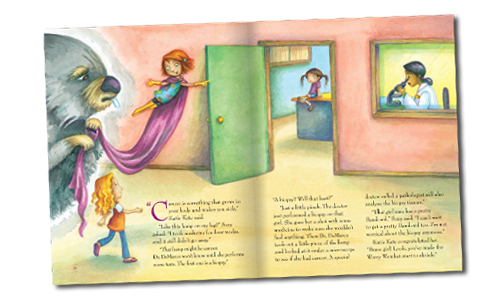'The Great Katie Kate,' Children's Book Superhero, Helps Kids Deal With Cancer Treatment Process

Radiation oncologist Dr. Maitland DeLand is no stranger to childhood cancer development after more than 30 years of health care experience. To help children better understand the process of cancer treatment and ease their anxiety, DeLand released The Great Katie Kate Tackles Questions About Cancer.
“Throughout my career as both a doctor and mother, I have learned that children have a natural curiosity and a resilience that often surprises adults,” DeLand explained to Medical News 4 You. “Children want and need clear explanations and straight answers to gain a sense of control over their own lives.”
DeLand, a single mother of two, says the point of her book is to remove some of the fear from both the child and the parent, also known as the Worry Wombat. She also believes that her book can help keep the parent and child on the same page so confusion over the diagnosis doesn’t occur. The most important part of cancer development in children, she says, is getting children to understand what the disease is.
“Well a cancer diagnosis just knocks parents over, and they want to know, what are the best options, and they want to communicate with their child just as they always have," DeLand told Fox News. “And it’s very difficult, communication breaks down.”
The book’s main character, The Great Katie Kate, is a superhero who helps Suzy, a young girl who just learned about her cancer diagnosis, better understand what that entails — including blood work, X-rays, and chemotherapy. The Great Katie Kate series also helps children cope with other diseases, such as asthma and diabetes.
Although rare, childhood cancer cases have been on a steady increase over the past few decades. The American Cancer Society estimates that 11,630 U.S. children will be diagnosed with some type of cancer in 2013. Today, over 80 percent of children with cancer survive for five years or longer.
“I think a child really doesn’t understand what cancer means, like, ‘What is this going on in my body?’ And children, like adults, want to have control,” Dr. DeLand told Fox News. “They want to have a sense of understanding, and for each, their journey is unique.”
Published by Medicaldaily.com



























